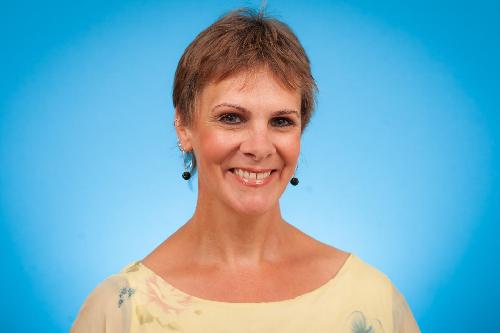TORONTO, April 5, 2016-- People who attended Gamblers Anonymous gambled less often, showed increased readiness for change and enhanced coping skills, but appeared to fair better when Gamblers Anonymous was combined with other therapeutic approaches, a comprehensive review has found.
Gamblers Anonymous is a twelve-step program for individuals with a gambling problem, based on peer support and a shared desire to stop gambling. About three to six per cent of the population experiences problem gambling, but the incidence is much higher within lower-income populations.
"Gamblers Anonymous is one of the most cost-effective and easily accessible resources for individuals living with problem gambling issues," said Dr. Flora Matheson, lead scientist of the study and medical sociologist at the Centre for Research on Inner City Health of St. Michael's Hospital. "However, despite the wide-spread use of Gamblers Anonymous, there has been little research exploring its effectiveness as a recovery approach, and those that have are largely inconsistent. We looked at the available data to identify gaps in knowledge and offer some insight for future focuses of study."
 This is Dr. Flora Matheson. Credit: Medical Media, St. Michael's Hospital
This is Dr. Flora Matheson. Credit: Medical Media, St. Michael's Hospital
The study, published today in the Journal of Gambling Studies, found that the effectiveness ofGambers Anonymous needs to be studied further, but appeared to show better rates of abstinence, improved gambling symptoms and better quality of life, especially when used in conjunction with other approaches, such as stress management intervention and cognitive behavioural therapy.
"Previous research has shown that many individuals with problem gambling also have substance abuse or mental health issues, often rooted in some sort of earlier trauma," said Dr. Matheson. "Gamblers Anonymous offers a safe space for people to share their experience with others who understand problem gambling, but maybe doesn't treat underlying causes related to gambling. It's possible these other approaches do."
The review included data from 17 studies on various aspects of problem gambling published between 2002 and 2015 - ranging from evaluating treatment effectiveness, to GA// culture characteristics and differences in gender experiences.
Among the findings:
- Greater reductions of depression, anxiety and stress, and increased life satisfaction and sleep duration among individuals using Gamblers Anonymous combined with stress management intervention (includes education on diet and exercise, stress coping methods, relaxation breathing and progressive muscle relaxation).
- Gamblers Anonymous participants demonstrated significant reductions in gambling symptom severity as well as improvements in psychosocial functioning and quality of life using imaginal desensitization plus motivational interviewing, or IDMI.
- Greater improvements in gambling symptoms and reduced days gambled when GA// was combined with cognitive behavioural therapy.
- Overall improved coping skills in Gamblers Anonymous attendees, better results in those also participating in cognitive behavioural therapy.
In addition to reviewing literature on the effectiveness of Gamblers Anonymous, the researchers examined differences in gender experiences with the program. Women seemed to benefit from Gamblers Anonymous as much as men initially, viewing it as a source of hope for their problem gambling. However, women used Gamblers Anonymous to develop informal social networks outside of the program with other women attending Gamblers Anonymous- a strategy important for women's recovery, as well as professional therapies.
"Gamblers Anonymous remains a viable and accessible option for people with problem gambling, but its effectiveness alone as a treatment option needs to be evaluated comprehensively to determine any gaps and improve care for these individuals," said Dr. Matheson.
source: St. Michael's Hospital